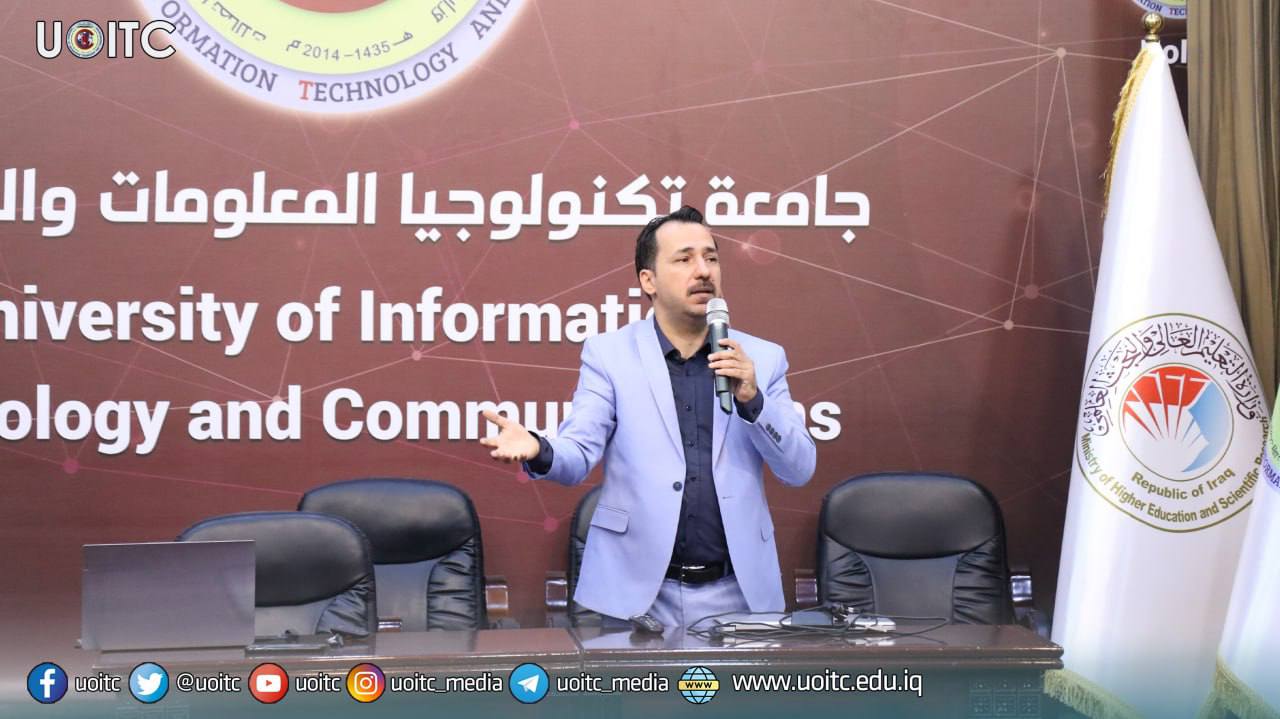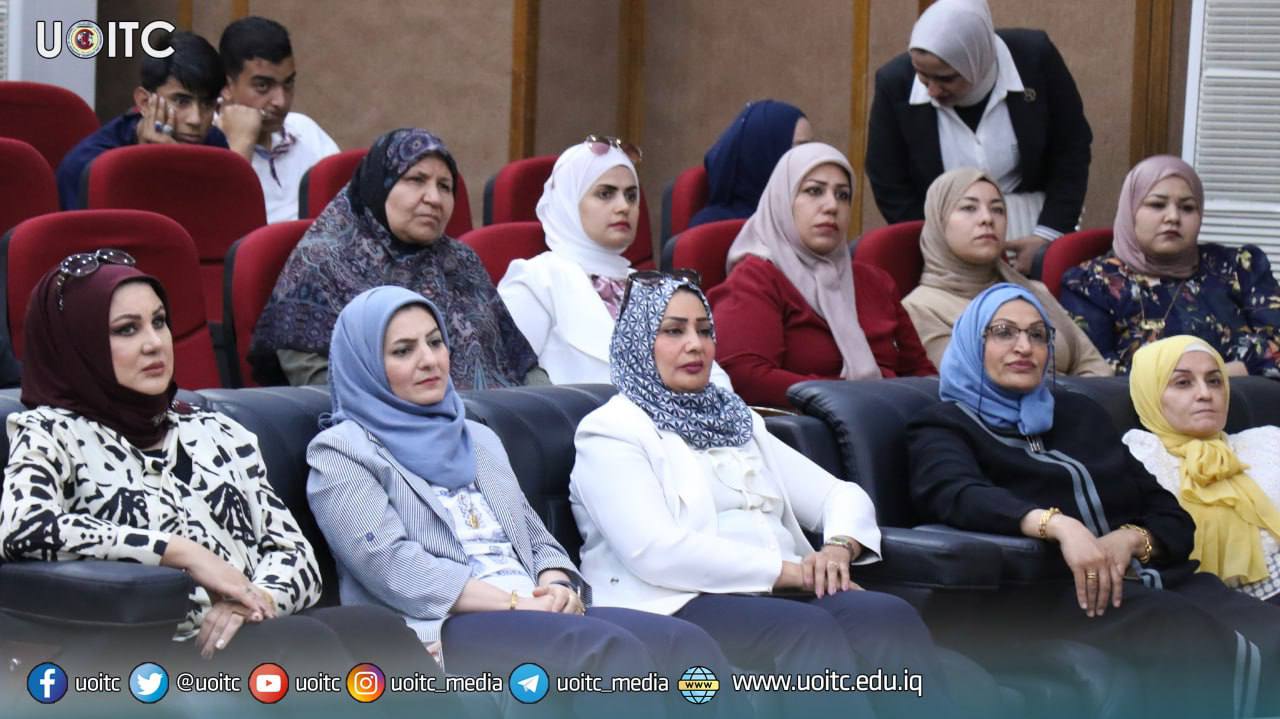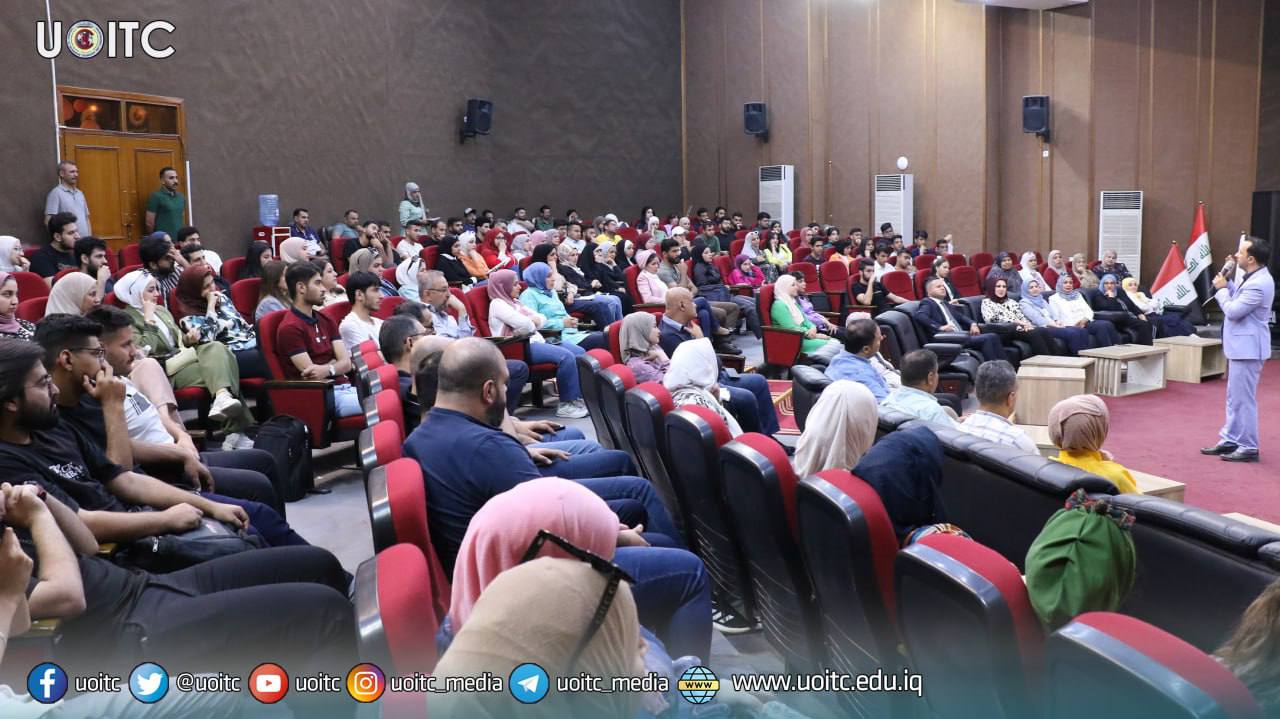In cooperation with the Iraqi National Security Service, Directorate of Public Universities Security, the College of Business Informatics at the University of Information Technology and Communications (UoITC) organized a workshop on electronic extortion.
The workshop was delivered by Mr. Issam Kamel, Director of the Technical Training Department at the Iraqi National Security Service, in the presence and supervision of the Director of the Public Universities Security Directorate, Colonel Mohsen Mahdi.
In this workshop, the definition of electronic extortion was defined, which is a bargaining process that takes place over the Internet based on intimidation, warnings, and threats from a person called the blackmailer to obtain financial or emotional compensation.
The workshop also pointed out the most prominent risks through which extortion occurs, which can be through the service provider, such as internal attacks, zero-day, or DOS. The transmission medium is also exposed to risks, in addition to the receiving devices, as they are the interface for dealing with the service, which is exposed to the dangers of malware, VPNs, suspicious links, viruses, security vulnerabilities, and excessive trust in famous applications.
The workshop discussed the ways to prevent electronic extortion, which are reviewing our contacts on social media, installing applications to monitor the home Internet, and using two-factor authentication for our accounts and social media. The mobile SIM number in the user’s name to secure email and social media accounts, constantly updating the programs used on the mobile device and the possibility of using strange and complex codes and passwords to increase security.
The workshop also indicated the necessity of not opening any links sent from unknown people, paid anti-virus protection programs, and avoiding free wireless networks.



